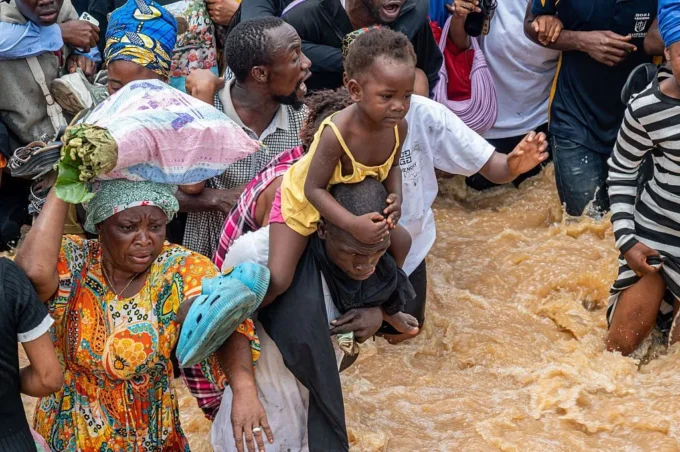In the eastern Congolese mining hub of Kamituga, sex workers are confronting a public health crisis and severe economic fallout as the mpox outbreak sweeps through the community. The town, known for its gold mining operations, is home to an estimated 40,000 sex workers, many of whom are single mothers driven by poverty into the profession. The outbreak has brought new risks to an already precarious livelihood, with stigma and fear driving clients away.
One such worker, Sifa Kunguja, a 40-year-old mother of 11, is still recovering from the mpox infection she contracted four months ago. Yet, despite having recovered, she struggles to regain her clients. “It’s risky work,” she says, but with no other source of income to support her children, Kunguja is forced to continue working in the face of ongoing health risks.
Sex workers in Kamituga have been among the hardest hit by the outbreak, with health officials estimating that about 80% of mpox cases in the area have been transmitted sexually. The virus, which causes painful blisters on the skin, spreads through close physical contact, making it particularly dangerous for those in the sex industry.
Health officials are calling for urgent interventions to contain the outbreak. However, local authorities argue that they lack the resources to address the crisis beyond providing care for those already infected. While there have been some efforts to raise awareness about the virus, including campaigns aimed at educating sex workers and their clients about prevention, much more needs to be done to curb the spread of the virus.
Miners, who form the majority of Kamituga’s male population, are the primary clients of the town’s sex workers. Kamituga’s economy revolves around its mines, with thousands of men streaming into the town to work, buy, sell, and trade gold. The resulting demand for sex work has created a well-organized industry, with the Kenyan-based African Sex Workers Alliance estimating that 13% of Kamituga’s 300,000 residents are involved in sex work. The town is even home to 18 sex-worker committees that advocate for the rights and safety of their members.
But sex work in Congo is dangerous. Women in the industry face systemic violence and abuse, exacerbated by societal stigma. The current outbreak of mpox has only intensified these challenges. Many sex workers, including Kunguja, report losing the majority of their clients due to the stigma surrounding the disease. As clients become aware of a worker’s previous infection, they avoid her out of fear, leaving women without sufficient income to support their families.
A lack of adequate protective measures is another significant concern. While health workers emphasize the importance of condom use in preventing the spread of mpox, sex workers often lack access to enough supplies. The town’s general hospital provides boxes of condoms every few months, but these are insufficient for the volume of clients many women see each day. Without the necessary tools to protect themselves and their clients, sex workers remain vulnerable to both the virus and its economic consequences.
While vaccines have started to arrive in Congo, Kamituga’s sex workers are still waiting for access. In the meantime, community leaders and aid organizations are working to raise awareness about the virus and encourage safer practices within the industry. However, until there is a more coordinated response from both local and national authorities, the outbreak continues to threaten not only the health but also the livelihoods of Kamituga’s sex workers.
The situation in Kamituga highlights the urgent need for targeted health interventions and economic support for those affected by the mpox outbreak. As the virus spreads, it is crucial that sex workers, who are among the most vulnerable, are not left behind in the response.














Leave a comment